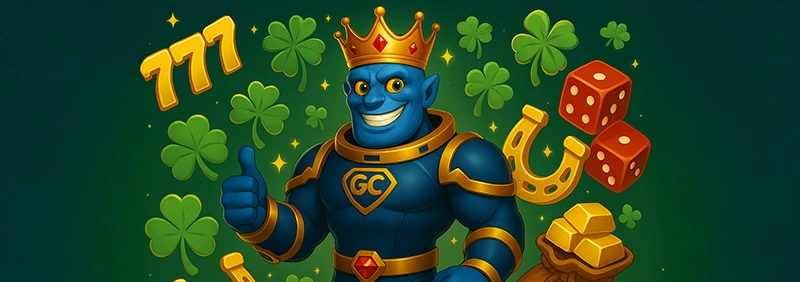Home > Casino Lab > Science of Slots > Can Math Beat Luck? The Real Limits of Strategy in Casino Games
Can Math Beat Luck? The Real Limits of Strategy in Casino Games
For as long as casinos have existed, players have sought systems, strategies, and mathematical shortcuts to beat the house. From card-counting in blackjack to betting progressions in roulette, the search for a winning formula never ends.
But in reality, while mathematics can explain and optimize certain aspects of gambling, it cannot erase the element of luck that defines casino games. Understanding where math ends and chance begins is essential for anyone who wants to gamble responsibly and avoid the illusion of guaranteed strategies.

Where Mathematics Helps in Gambling
Mathematics is undeniably central to casino games. Probabilities define the odds of every outcome, while concepts like RTP, volatility, and house edge set the long-term expectations. For players, math can help in two key ways:
First, it allows for informed decision-making. By choosing games with lower house edges or higher RTP values, players improve their chances of lasting longer and potentially walking away with winnings. Second, math supports bankroll management strategies. Tools like the Kelly Criterion provide frameworks to optimize bet sizes and minimize the risk of ruin, turning gambling into a controlled experience rather than reckless play.
The Role of Luck in Casino Games
Despite the power of mathematics, luck remains the decisive factor in most casino games. Slots, roulette, and craps are governed by RNGs (Random Number Generators) that ensure outcomes are independent and unpredictable. No mathematical system can alter this randomness.
Even in skill-based games like Blackjack or Poker, where probabilities can be calculated and strategies applied, luck still influences the outcome of individual hands or sessions. Over the long run, optimal play may reduce the house edge or increase profitability, but it never guarantees consistent wins.
The Illusion of Winning Systems
Casinos thrive on the fact that many players believe in so-called “foolproof systems.” Betting progressions like the Martingale suggest that doubling bets after losses will eventually secure a win. In practice, these systems often lead to bankroll exhaustion or table limits that prevent recovery.
The mathematics behind these systems shows their flaws: while they may provide short-term streaks of success, the house edge always ensures profitability for the casino in the long run. This is why professional gamblers emphasize discipline, strategy, and bankroll management over chasing patterns.
The Limits of Strategy in Practice
Mathematics can improve odds but cannot eliminate risk. For example, a blackjack player using basic strategy can reduce the house edge to around 0.5%, but they cannot eliminate it entirely. Similarly, poker players can leverage math and psychology to gain an edge over opponents, but luck still dictates outcomes in the short term.
The key is recognizing that math provides a framework for better decisions, while luck dictates outcomes within that framework. Strategy maximizes potential, but chance remains the ultimate arbiter in gambling.
Looking Ahead – Math and Web3 Casinos
In the era of Web3 casinos, mathematics may play an even greater role. Blockchain technology enables provably fair algorithms, allowing players to verify randomness and outcomes directly. DeFi integration may also allow new ways to calculate risk and reward through staking and tokenized gambling. Yet even in these environments, the laws of probability remain unchanged: luck will always decide the final result of each spin, hand, or roll.
Conclusion
Mathematics is a powerful tool in gambling, but it is not a silver bullet. While it helps players understand probabilities, manage bankrolls, and choose games wisely, it cannot override the randomness that defines casino play.
The smartest gamblers embrace math as a guide but never forget that in the end, luck is the only constant in the casino.

